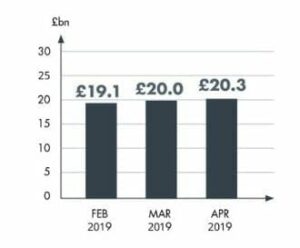Unless you have been living under a rock, you will have seen that the economy has been in the news a lot recently. We have inflation over 10% and at the highest seen for 40 years. As a result, interest rates are being raised. The Bank of England base rate currently sits at 2.25% and further rises are almost definite in the near future. Government borrowing is through the roof and there is no immediate plan for that to start coming down. Meanwhile, the overall cost of that borrowing is rising due to economic and political instability.
Whilst there is plenty there to focus on interest only mortgages, this article will look specifically at mortgages during this turbulent period. How they are affected, the rates that are on the market, and how house prices might react.
How are mortgage rates affected?
Naturally, as the Bank of England base rate rises, so do mortgage rates. The various types of mortgage rate move in different ways though. Let’s look at the current interest rates on a mortgage.
Standard Variable Rates (SVR) often change a week or two after the base rate is amended. This is based on the price of borrowing today so is generally a certain percentage above the base rate. The amount above the base rate will approximately match the profit margin of the lender. High street lenders will generally work from smaller profits as they are competing on price, whereas specialist lenders charge higher interest as they are taking more risk with aspects such as bad credit or poor affordability.
As discounted rates provide a rate reduction from a lender’s SVR, these will change at the same time that the SVR changes. Of course, the discount will be factored in to the new rate.
Tracker rates follow a particular index such as the Bank of England base rate, so these change within a few days. For example, those tracker rates that sit 2% above the base rate will now be charging 4.25% interest.
With fixed rate mortgages, this is more complicated. They are not directly based on the current Bank of England base rate, but rather expectations for interest rates over the next 2, 3, 5 years (depending on how long you are fixing for).
That explains why a fixed rate mortgage deal is now suddenly so high. With the mini-budget pushing interest rate expectations much higher, the fixed rates have had to make a rapid adjustment. Economists predict that interest rates will peak at around 5.5% in Spring next year, meaning fixed rates now are pricing in the rise to that peak and a slow fall back down to around 4% in 2027. Generally, the mortgage cost will be significantly higher in future years compared to previous years.
Of course, these are only predictions, and the actual rates could behave very differently in the short, medium and long term.
What mortgage rates are available now?
As reported in a recent article – on 29th October 2022, the average five-year fixed rates stand at 6.34%. To compare mortgages, a year ago they were 2.55%. The rates now are more than 250% of those in October 2021. This shows a significant increase in current home mortgage rates.
See below for an indication of the difference in pound terms on your mortgage payments.
Based on a £250,000 repayment mortgage with a 25 year term:
- Interest rate of 2.55% means monthly repayments of £1,128
- Interest rate of 6.36% means monthly payments of £1,666
Therefore, £538 more per month is being spent on interest alone. This additional payment does not repay the loan any quicker, it is essentially money down the drain.
There will be many people with expiring fixed rate deals from the days of rates around 2%. They will be looking at their potential monthly repayments now and wonder how they will be affordable. If this is the case, many homeowners will look to downsize their home or try to increase the equity in their current home to reduce the total monthly cost.
One factor that may help with this is that some believe the current fixed rates are an overreaction to the mini-budget chaos. In the days following Kwasi Kwarteng’s announcements, there was economic turmoil for the UK and many lenders removed all their products from the market.
There were sincere concerns that the Bank of England may issue an emergency interest rate increase to combat the issues. They did not do this, but the expectation was that in November interest rates will be hiked significantly.
Now that the mini-budget has been mostly reversed and relative stability has returned to the markets, we could see a reduction in the fixed rates in the near future. All eyes will be on the Bank of England on 3rd November, when the next rise is expected.
As one lender said to us directly, “the products on the market at the moment are there so that we can offer something rather than nothing”. This indicates that most lenders had no idea where to price their mortgages so they went for the higher end to play it safe. Only time will tell what the rates stabilise at towards the end of the year.
What can I do about rising mortgage rates?
We can’t hide from the fact that current mortgage rates in the UK have increased during 2022. There is no magic wand that will bring rates back to where they have been since the 2008 financial crisis. The harsh reality is that the abnormal period was those years of rates around 1-2%, and we are now just returning to relative normality. A base rate of between 4 and 6% will be the new normal for the next 5 years and likely beyond.
That being said, the fixed rates currently on the market may be overpriced and therefore it could be worth biding your time to see how rates look in a month or two. This is of course a risk, because rates could rise further. The fact is that this decision will depend on your specific situation so you are highly recommended to speak to a mortgage broker for advice. We offer a free initial meeting with no obligation to proceed. Alternatively you could use one of the many mortgage calculators to get an idea of your future cost.
The tracker and discounted rates on the market right now are between 3 and 5%, so currently more competitive than fixed rates. These will rise as the base rate inevitably rises so may not be a long term solution. However, some of these come with no early repayment charges, so you could use one whilst you are waiting to see what happens with fixed rates. Please note that they will likely incur product charges so do check the full costs before committing. Again, please speak to a mortgage broker to find the best mortgage.
Your home may be repossessed if you do not maintain the payment son your mortgage.







